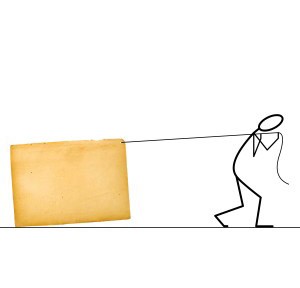 In today’s culture, we look for instant gratification and short-term payoffs.
In today’s culture, we look for instant gratification and short-term payoffs.
We also reward people for short-term goals such as increasing sales two percent each month or to fix a piece of equipment, and they’ve come to expect these rewards immediately.
However, this short term goal achievement is inconsistent with the notion of an important leadership trait: Persistence.
To quote Calvin Coolidge, “Nothing in the world can take the place of persistence. Talent will not; nothing is more common than unsuccessful men with talent. Genius will not; unrewarded genius is almost a proverb. Education will not; the world is full of educated derelicts. Persistence and determination are omnipotent. The slogan ‘press on’ has solved and always will solve the problems of the human race.”
Persistence is also one of the most effective strategies for success, according to Heidi Grant Halvorson, contributor to the HBR Blog Network.
How did she discover this?
She built a free online questionnaire: Nine Things Diagnostics.
Its purpose? To give you a better sense of where you’ve used strategy in the past when trying to reach your goals, and which areas need your attention.
Successful persistence involves being able to confront challenges while maintaining perspective, even if things become stressful or complicated.
How do you do this? Here are a few tips.
How to Develop and Perfect Persistence
Know the road ahead is long. While immediate, short-term fixes help, they are part of a longer journey, not short cuts to the end goal.
Be honest with yourself about what you want, and what you can realistically achieve.
Define your goal and identify the steps needed to be successful.
Take one step at a time. Persistence is the ability to move forward at a consistent pace, while being open to adjustments. You may have a plan, but uncertainties and obstacles may necessitate shifts in order to succeed.
Pace yourself. This isn’t a race to the finish line, and you can’t do everything all at once. You will burn yourself out.
Keep going and sustain the momentum so your efforts don’t stall. When you feel your determination begin to wane, remind yourself why you wanted to accomplish your goal in the first place.
To have success, leaders need to develop, and perfect, persistence and determination.
Back in 1995, Steve Jobs said, “I’m convinced that about half of what separates the successful entrepreneurs from the non-successful ones is pure perseverance.”
A true leader won’t throw in the towel, even when faced with adversity.
What other advice would you add?
